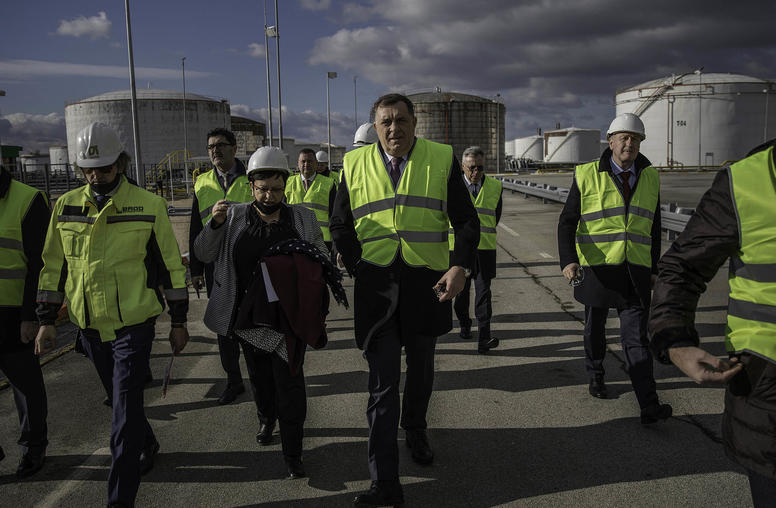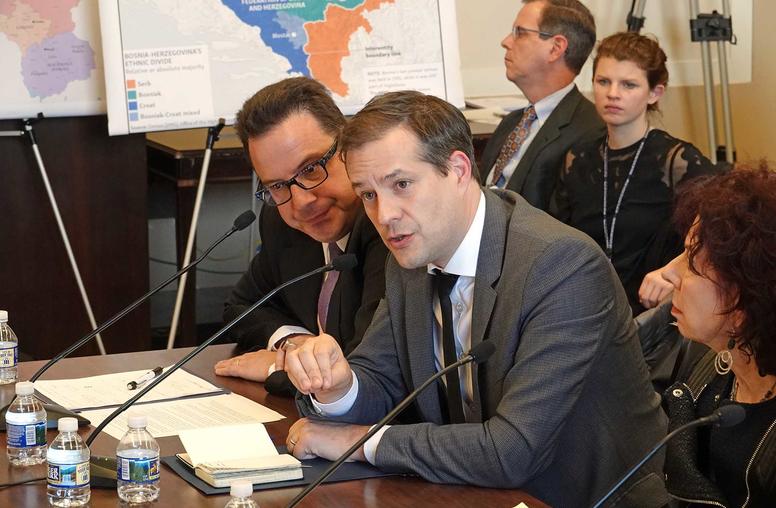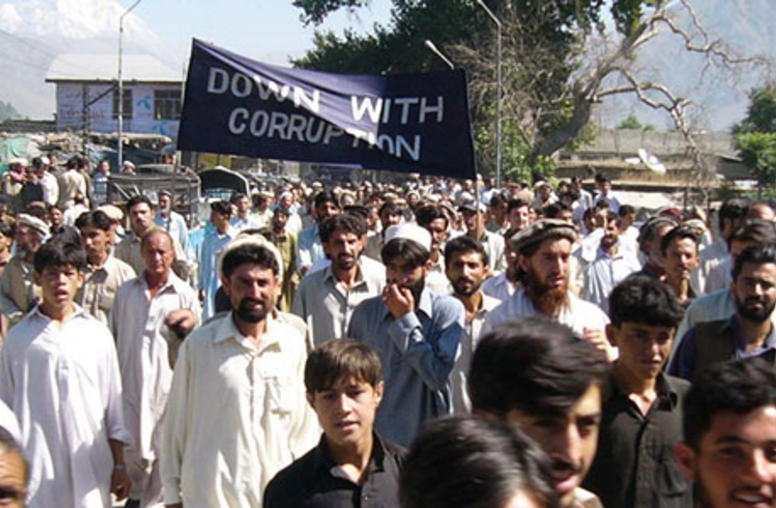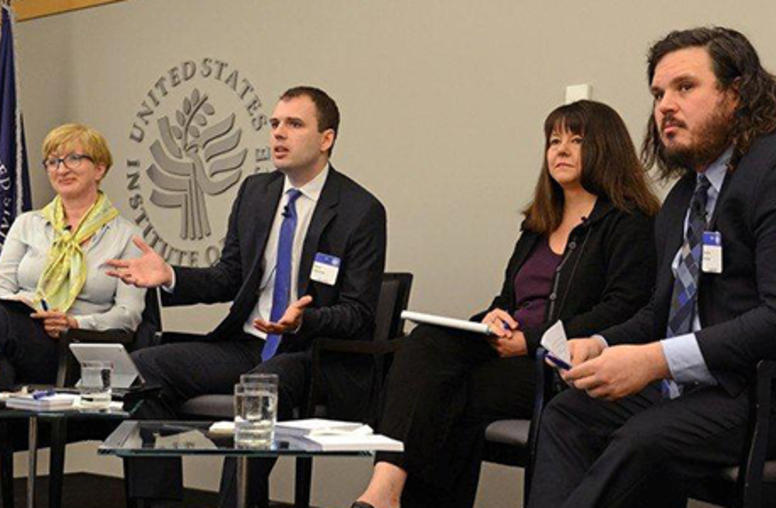Women, Religion and Peacebuilding
Illuminating the Unseen
Women, Religion, and Peacebuilding: Illuminating the Unseen examines the obstacles and opportunities that women religious peacebuilders face as they navigate both the complex conflicts they are seeking to resolve and the power dynamics in the institutions they must deal with in order to accomplish their goals.
Many women working for peace around the world are motivated by their religious beliefs, whether they work within secular or religious organizations. These women often find themselves sidelined or excluded from mainstream peacebuilding efforts. Secular organizations can be uncomfortable working with religious groups. Meanwhile, religious institutions often dissuade or even disallow women from leadership positions. Women, Religion, and Peacebuilding: Illuminating the Unseen shows how women determined to work for peace have faced these obstacles in ingenious ways—suggesting, by example, ways that religious and secular organizations might better include them in larger peacebuilding campaigns and make those campaigns more effective in ending conflict.
In a world where women and children suffer disproportionally in conflicts they rarely create, this book provides the reader with important information about the role that women play, not just as victims of conflict but as advocates in peacebuilding and important interpreters of their religious traditions.
The first part of the book examines the particular dynamics of women of faith working toward peace within Catholicism, Islam, Buddhism, Hinduism, and Judaism. The second part contains case studies of women peacebuilders in Africa, Latin America, Europe, the Middle East, and Asia, detailing how their faiths have informed their work, what roles religious institutions have played as they have moved forward, what accomplishments have resulted from their efforts, and what challenges remain. An appendix of interviews offers further perspectives from peacebuilders, both women and men.
Ultimately, Women, Religion, and Peacebuilding is a call to change the paradigm of peacebuilding inside and outside of the world’s faiths, to strengthen women’s abilities to work for peace and, in turn, improve the chances that major efforts to end conflicts around the world succeed.
Susan Hayward serves as the interim director of the Religion and Peacebuilding Program at the United States Institute of Peace. Her research interests include interfaith engagement in the midst of political violence, political Buddhism, and the role of religion in hampering and propelling women’s work for peace and justice. Hayward worked with the Academy of Educational Development’s office in Colombo, Sri Lanka; as a fellow of the Program on Negotiation at Harvard Law School; and with the Conflict Resolution Program at the Carter Center in Atlanta. She is an ordained minister in the United Church of Christ. She holds a bachelor’s degree in comparative religions from Tufts University and master’s degrees from the Fletcher School of Law and Diplomacy and Harvard Divinity School and is currently pursuing her PhD in theology and religious studies at Georgetown University.
Katherine Marshall is a senior fellow at Georgetown’s Berkley Center for Religion, Peace and World Affairs and is a visiting professor in the School of Foreign Service. She is the executive director of the World Faiths Development Dialogue. Marshall spent a large part of her career at the World Bank in many leadership assignments focused on Africa, Latin America and East Asia. A graduate of Wellesley College (’67) and Princeton (MPA), Marshall is the author of many articles and several books, most recently Global Institutions of Religion: Ancient Movers, Modern Shakers. She writes regularly for the religion page of the Huffington Post.
Contents
- Religious Women’s Invisibility: Obstacles and Opportunities - Susan Hayward and Katherine Marshall
- Part I Women Peacebuilders: Distinctive Approaches of Different Religious Traditions - Susan Hayward and Katherine Marshall
- Catholic Women Building Peace: Invisibility, Ideas, and Institutions Expand Participation - Maryann Cusimano Love
- Muslim Women’s Peacebuilding Initiatives - S. Ayse Kadayifci-Orellana
- Creating Peaceful and Sustainable Communities through the Spiritual Empowerment of Women in Buddhism and Hinduism -Dena Merriam
- Jewish Women in Peacebuilding: Embracing Disagreement in the Pursuit of “Shalom” - Lucy Kurtzer-Ellenbogen
- Part II Women and Faith in Action: Regional Case Studies - Susan Hayward and Katherine Marshall
- An All- Women Peacekeeping Group: Lessons from the Mindanao People’s Caucus - Margaret Jenkins
- Women, Religion, and Peacebuilding in Kaduna State, Nigeria - Bilkisu Yusuf and Sr. Kathleen McGarvey
- The Politics of Resistance: Muslim Women Negotiating Peace in Aceh, Indonesia - Etin Anwar
- Women Reborn: A Case Study of the Intersection of Women, Religion, and Peacebuilding in a Palestinian Village in Israel -Andrea K. Blanch, with coauthors Esther Hertzog and Ibtisam Mahameed
- Women Citizens and Believers as Agents of Peace in Bosnia and Herzegovina - Zilka Spahic Šiljak
- Women Peacebuilders in Postcoup Honduras: Their Spiritual Struggle to Transform Multiple Forms of Violence - Mónica A. Maher
- Women, Religion, and Trauma Healing: A Case in India - Anjana Dayal Prewitt
- Strengthening Religious Women’s Work for Peace - Jacqueline Ogega and Katherine Marshall
- Conclusion: Seeking Common Ground - Susan Hayward and Katherine Marshall
- Appendix: Scholars and Practitioners Engaged with Women, Religion, and Peace



